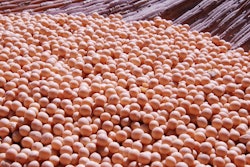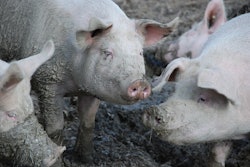USDA Secretary Perdue Believes China Will Buy US Soybeans This Summer
USDA Secretary Sonny Perdue predicted that China will start buying US soybeans in the late spring and early summer.
Soybeans made up more than half of China's US agricultural purchases in 2017 before the trade war and are expected to be a key part of any increased purchases.
In the initial deal signed on Jan. 15th, China promised to buy at least an additional $12.5 billion worth of U.S. farm products in 2020 and at least $19.5 billion in 2021 over the 2017 level of $24 billion.
Since the trade deal has been signed, China has not made material purchases of US agricultural commodities.
An outbreak of African swine fever (ASF) in China has reduced China's demand for soy used to feed hogs.
The spread of the new coronavirus is also threatening China's economic growth.
President Trump said last month that the US may give American farmers additional money until trade deals with China, Mexico, Canada and other countries fully go into effect.
FBN’s Take On What It Means: Between a record large Brazilian soybean crop coming, a strong US dollar, compressed domestic Chinese demand and coronavirus, we view China’s sluggish pace of US soybean purchases as normal business activity. Because China’s policy is to procure soybeans, and other agricultural commodities, based on domestic demand and by the cheapest cost, we view the current scenario as a short term negative for the US soybean export program.
Argentina Could See Falling Soybean Acres
According to a local farm consultant AgriPac, the recent tax increase on exports of soybeans and its derivatives can drive down Argentine farm investment and likely result in smaller harvests going forward.
AgriPac farm consultancy estimates that Argentina planting area could go down by 1 million hectares next season, specifically due to this tax increase.
The tax on most exports of soybeans, soymeal and soyoil will rise to 33% from 30%.
That could result in 3 million tonnes less soy output from Argentina.
Argentina is the largest exporter of soybean meal and oil.
The higher tax is based on the size of individual farm operations.
Larger producers, about a quarter of the country's soy farmers, are slated to pay the top 33% tax rate.
Large-scale farms account for 77% of the country's soybean production.
Export levies are paid by export companies, which subtract the amount taxed from the prices they pay farmers.
FBN’s Take On What It Means: Because the export tax is paid by the farmers we believe that less money for Argentina farmers can translate to less farm investment which can act as a disincentive to production. We think that less Argentina soybean acres can be a positive for the US soybean export program and for the US farmer.
The risk of trading futures, hedging, and speculating can be substantial. FBN BR LLC (NFA ID: 0508695)










